What’s good, what’s bad, and how to stay healthy
It’s said that people who sleep next to their dogs or cats tend to fall asleep faster and are generally happier. While research and subjective human experience suggest sleeping with a pet can provide a variety of benefits, there are also challenges. We summarise key observances and share tips on how to maintain essential hygiene.
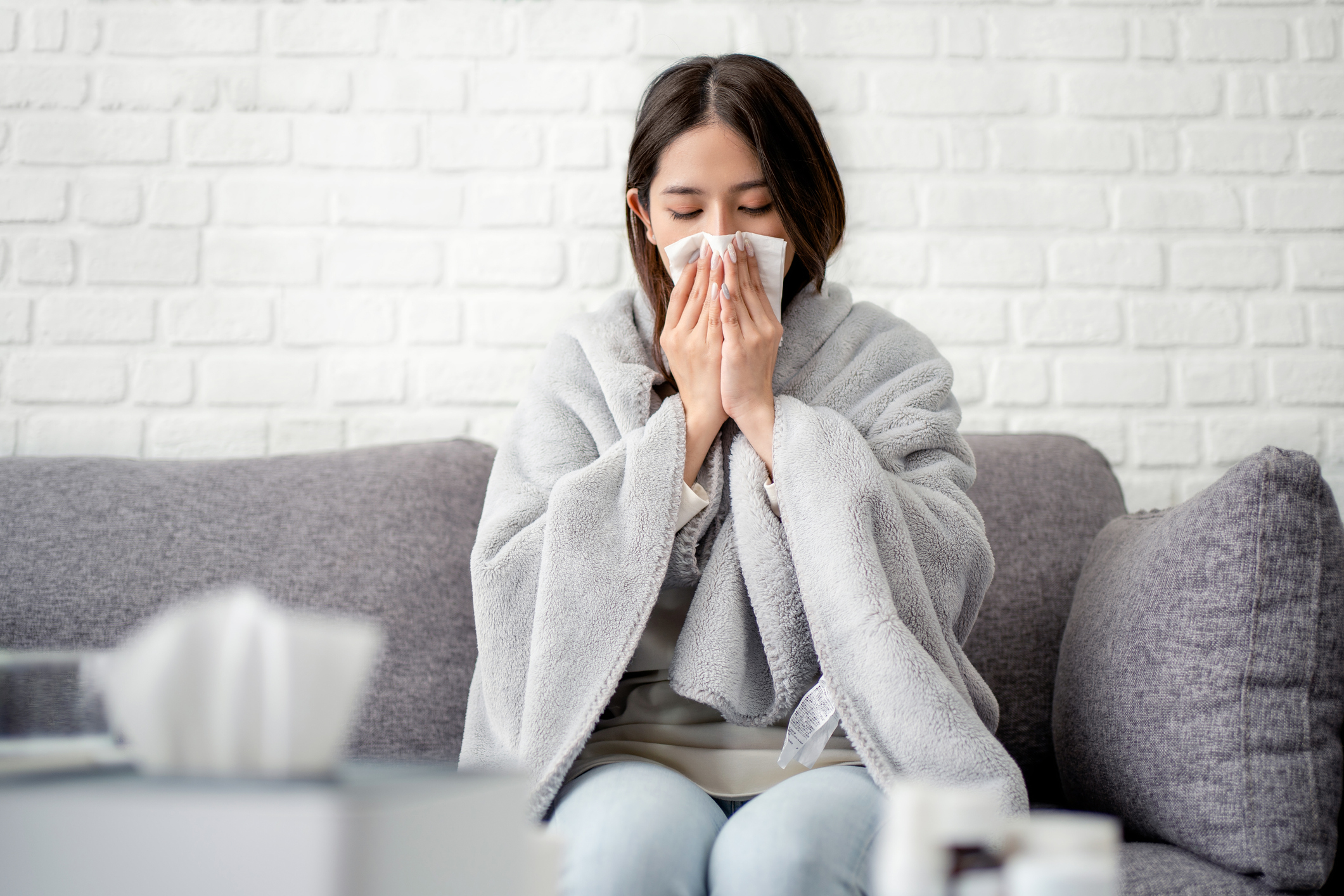
Sleeping with your pet can be a divisive issue. While some people are adamantly opposed to it because of allergies and sleep deprivation, researchers have discovered a number of reasons why it can be rewarding and healthy. Sleeping with your pet, for example, can increase your sense of security and comfort, and it has even been found to reduce nightmares.
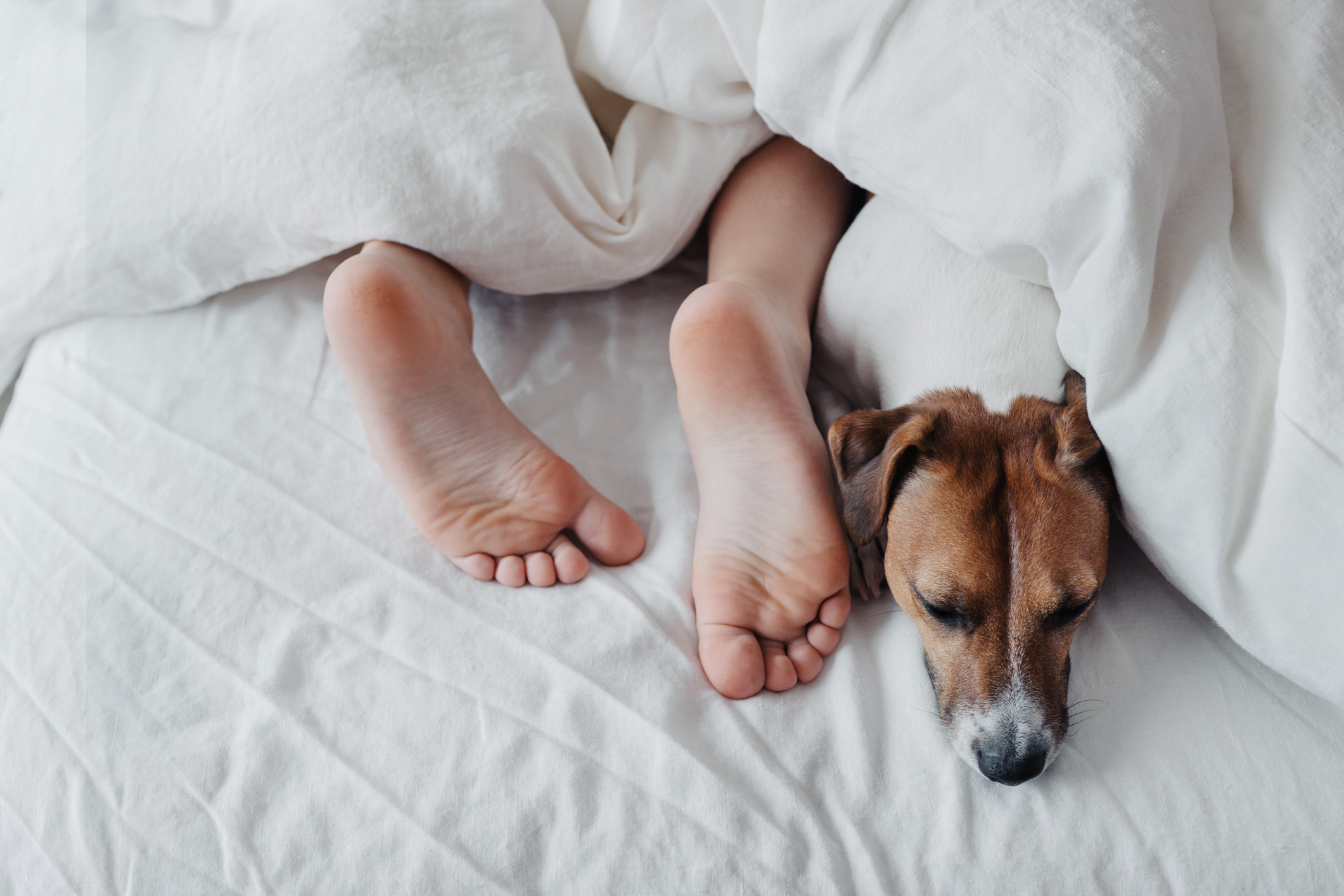
When sleeping with your pet can be bonus
Pets provide comfort and companionship. According to a 2017 Mayo Clinic study, some people sleep better with their dogs in their bedrooms because their presence is soothing and promotes tranquillity.
Studies have shown that sleeping near them at night can ease insomnia as it mitigates anxiety. The US Sleep Foundation also found that it minimised nightmares in people with PTSD. By releasing serotonin, a natural antidepressant hormone, it even reduces depression. Furthermore, it increases the levels of oxytocin, which encourages REM sleep by releasing theta brainwaves. This means you’ll probably sleep deeper.
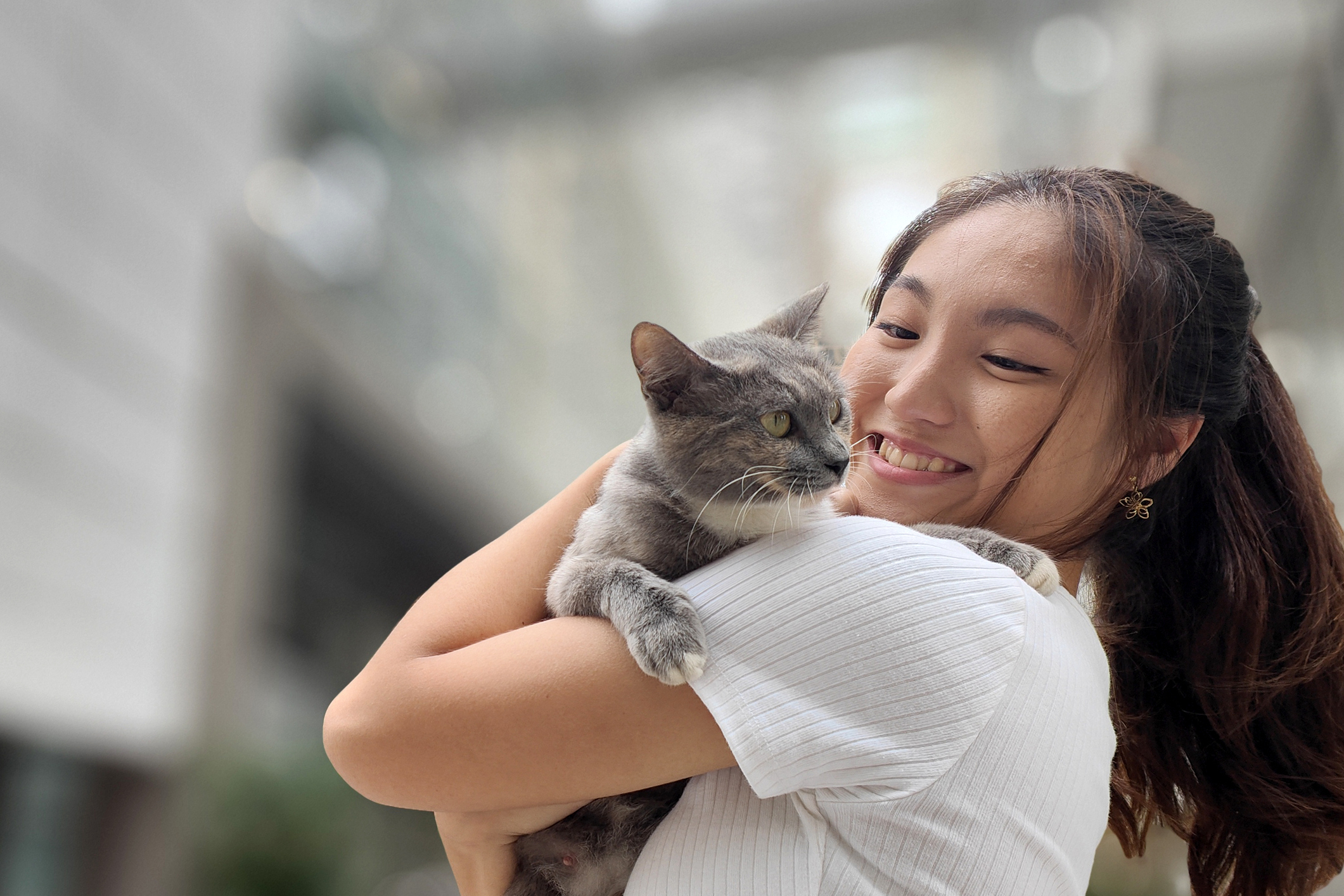
Pets lower blood pressure and keep your heart healthy. According to the American Heart Association, pet interaction reduces hypertension. Pet parents also recovered faster when faced with stressful situations and their heart rates were significantly lower.
Owners tend to have lower triglyceride and cholesterol levels, adds the American Heart Association. Additionally, heart attack patients with dogs survive longer than those without. Dogs and cats with closer bonds to their humans also benefit from increased feel-good neurotransmitters like oxytocin and dopamine, says Dr Dana Varble, chief veterinary officer of the North American Veterinary Community. Yes, animals produce these and serotonin, too.
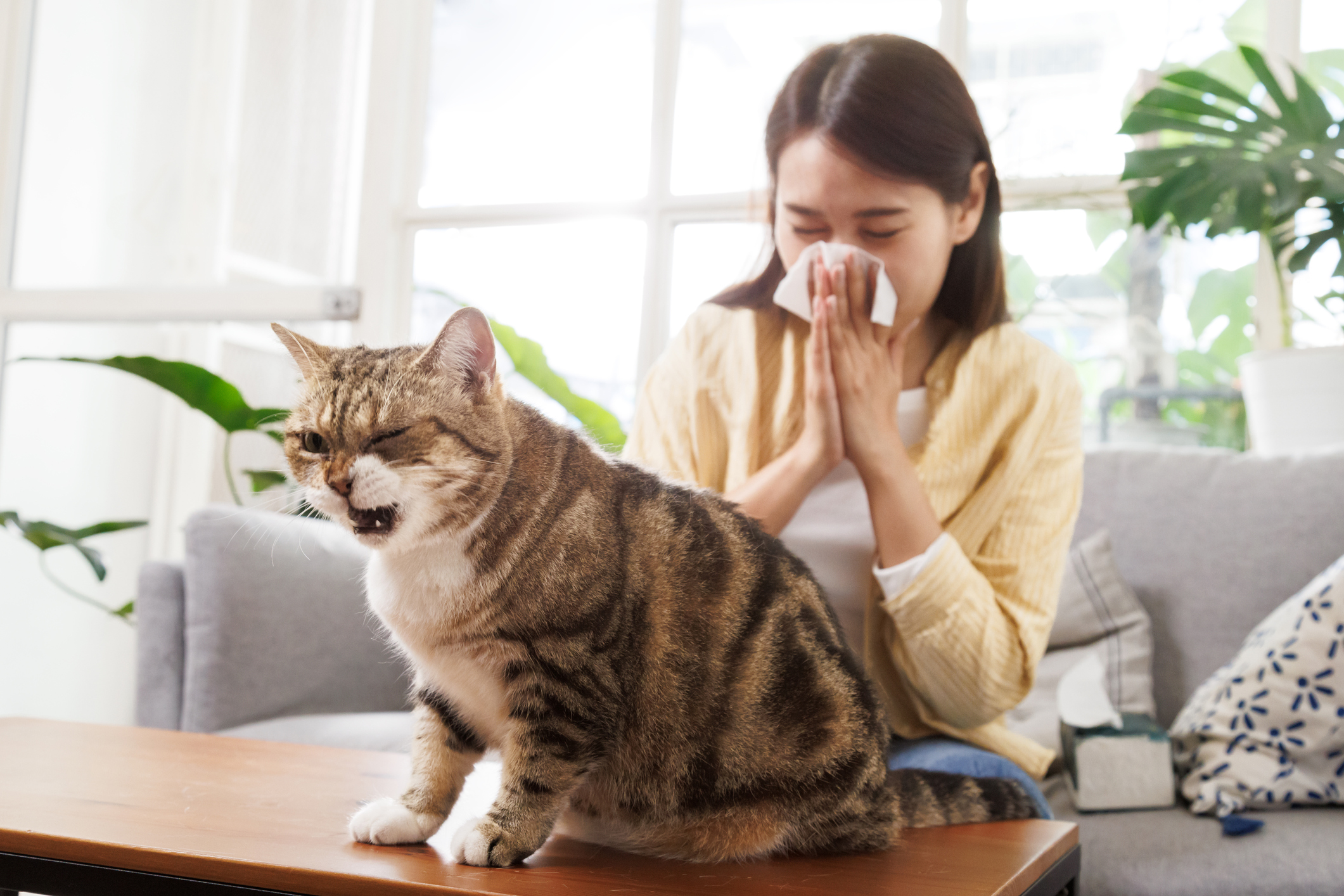
When sleeping with them may not be a good idea
Pets can exacerbate allergies. Cleveland Clinic recommends avoiding pets in your bed and bedroom if they trigger allergies. As Dr Sandra Hong, chair of its Allergy and Immunology Department, explains, pet allergies are caused by proteins in the animal’s fur, skin, urine, and saliva. Furthermore, any pet can produce allergens – there is no such thing as a hypoallergenic pet.
For those with asthma or chronic obstructive pulmonary disease, sleeping with a furball could also be a nightmare due to the allergens in a cat or dog’s saliva and in their skin. Your bedding can also accumulate fur and dander, making breathing difficult.
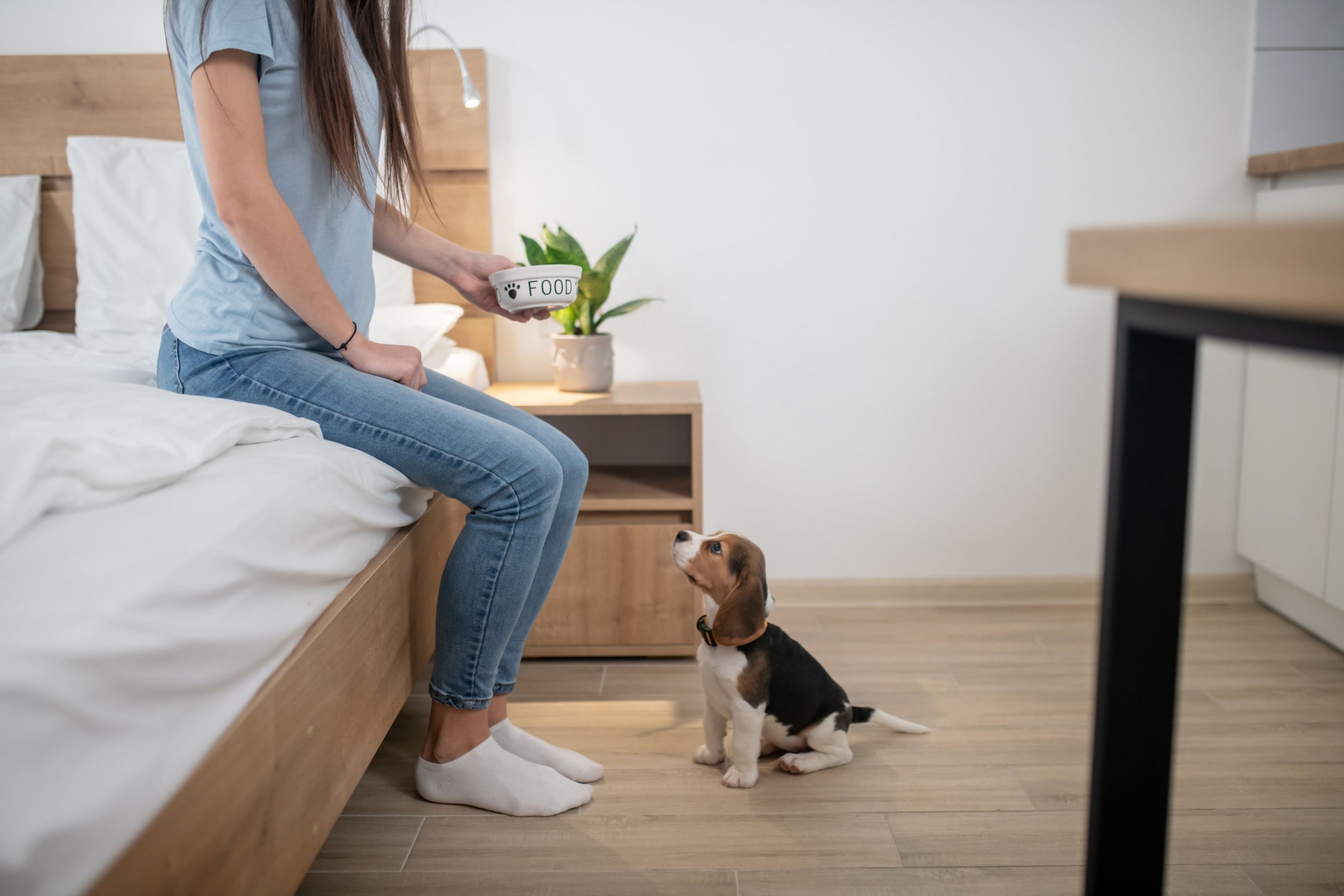 While dogs can be comforting, they can also disrupt sleep. Dogs (and cats) do not sleep continuously, so they often get up and walk on the bed, stepping on people. People with insomnia, delayed sleep phases, or sleep apnoea, who wake up from breathing cessation and are unable to fall back asleep, are especially at risk, according to Dr Vsevolod Polotsky, director of sleep research at Johns Hopkins and professor of medicine. Train them to sleep in their own bed instead of yours if this is happening. It can still be comforting.
While dogs can be comforting, they can also disrupt sleep. Dogs (and cats) do not sleep continuously, so they often get up and walk on the bed, stepping on people. People with insomnia, delayed sleep phases, or sleep apnoea, who wake up from breathing cessation and are unable to fall back asleep, are especially at risk, according to Dr Vsevolod Polotsky, director of sleep research at Johns Hopkins and professor of medicine. Train them to sleep in their own bed instead of yours if this is happening. It can still be comforting.
If your dog shows signs of aggression or any other problem behaviour caused by co-sleeping, keep him or her out of your room and consult with a professional trainer, behaviour consultant, or veterinarian.
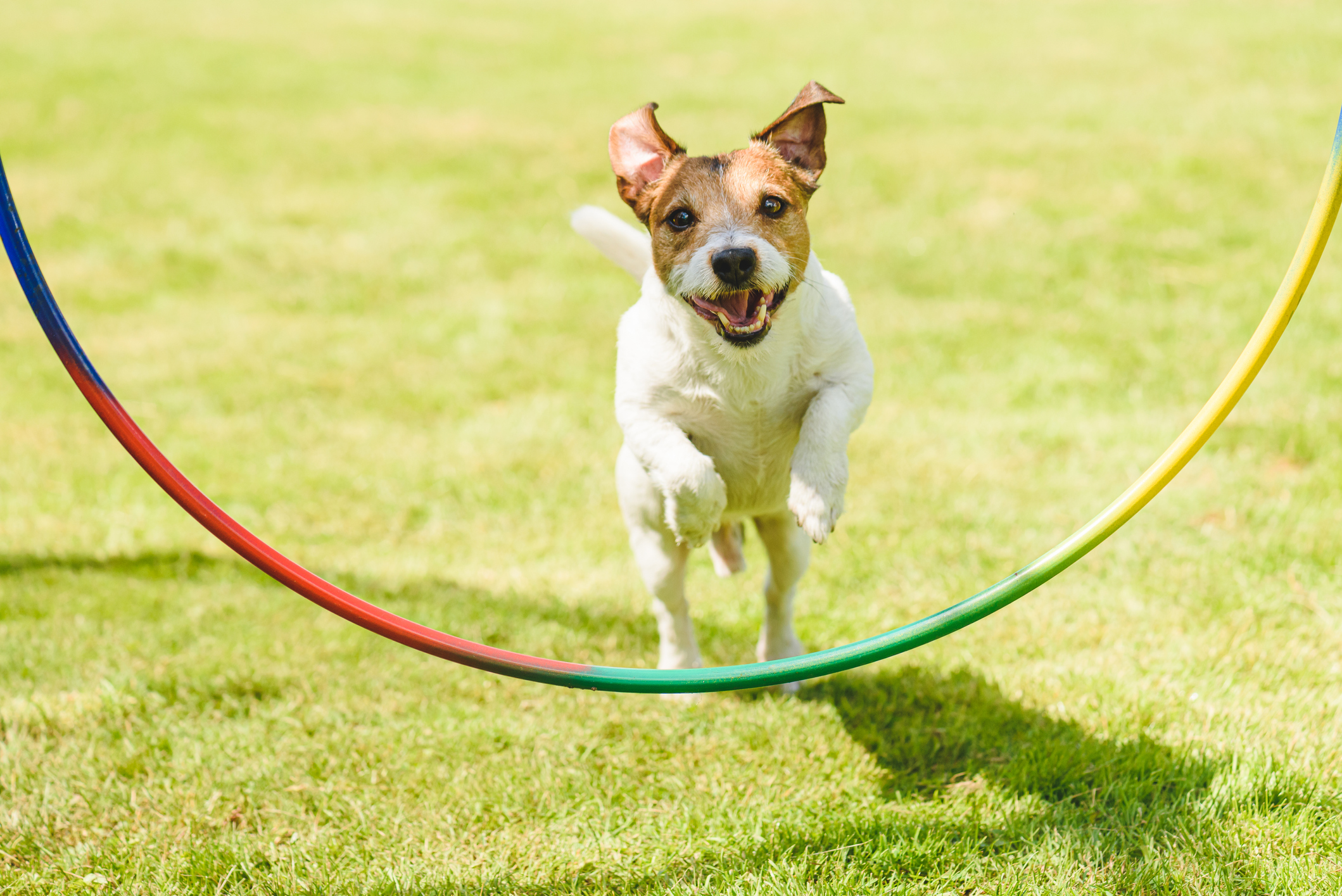
Mitigate allergies and hygiene concerns by grooming your pets regularly and keeping them clean. Your dog or cat can bring dirt, germs, and parasites into your home and bedroom after it’s been outdoors. Wipe down their paws and coat to keep dirt and outdoor allergens out of the bedroom and the rest of your home. Absorb Plus antibacterial pet wipes from Perromart.com.sg are alcohol- and paraben-free, pH- balanced, dermatologically- and microbiologically tested, and said to provide the best care.
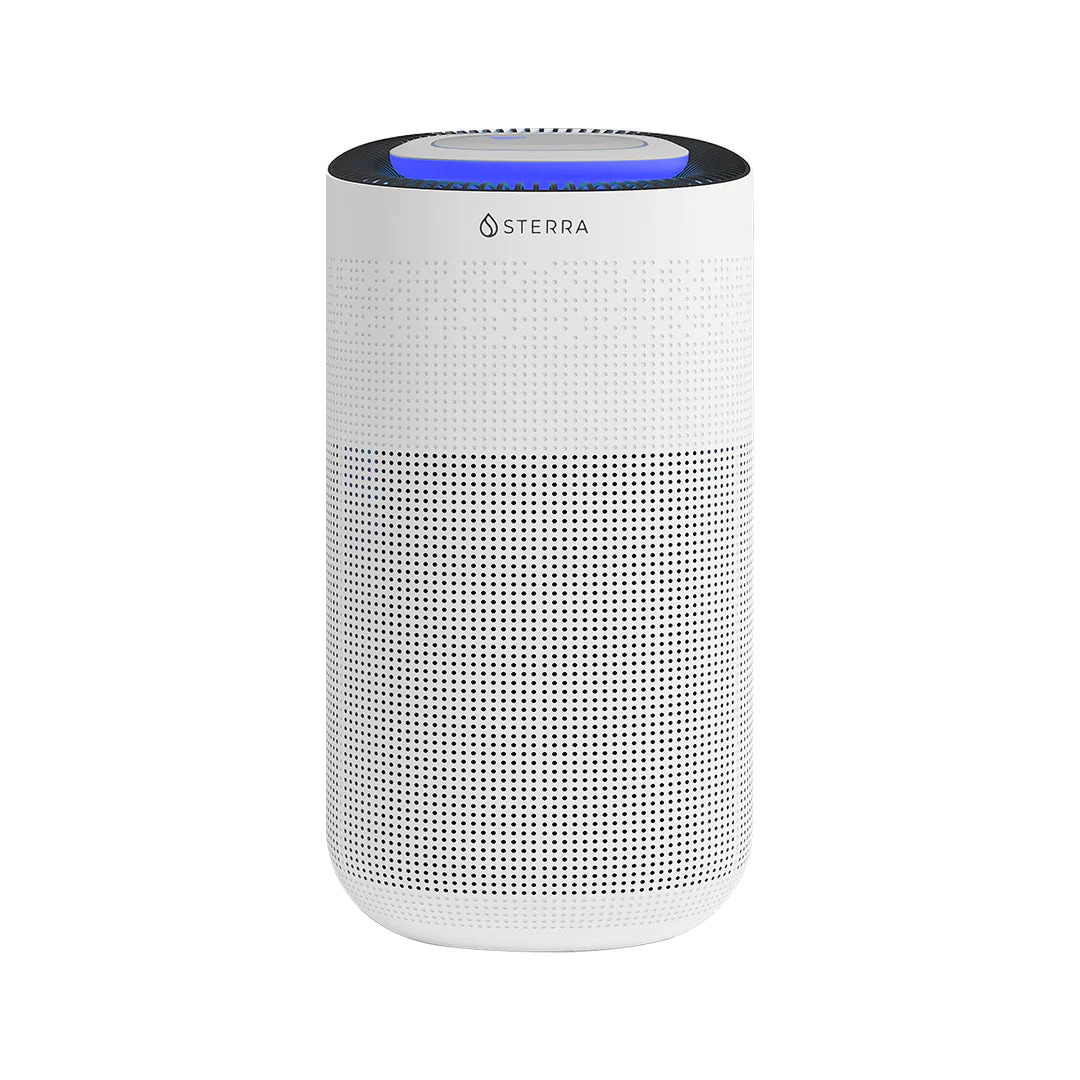
Clean the air around you. To eliminate dust, fur, germs, dander, and other allergens from the air, you need an air purifier. The Sterra Breeze True HEPA-13 Air Purifier captures the aforementioned and up to 99.97 percent of all airborne particles from an HDB flat with three to four rooms for removal, delivering 400 m3/hr of fresh, clean air.

Finding a balance
It is up to you whether or not you sleep with your pet in your bed. However, to enjoy a restful night’s sleep while cherishing the bond you share, you must find the right balance. Improve your sleep and health by following these tips.
Train your pet to recognise when it’s bedtime and when it’s playtime to ensure a peaceful night’s sleep.
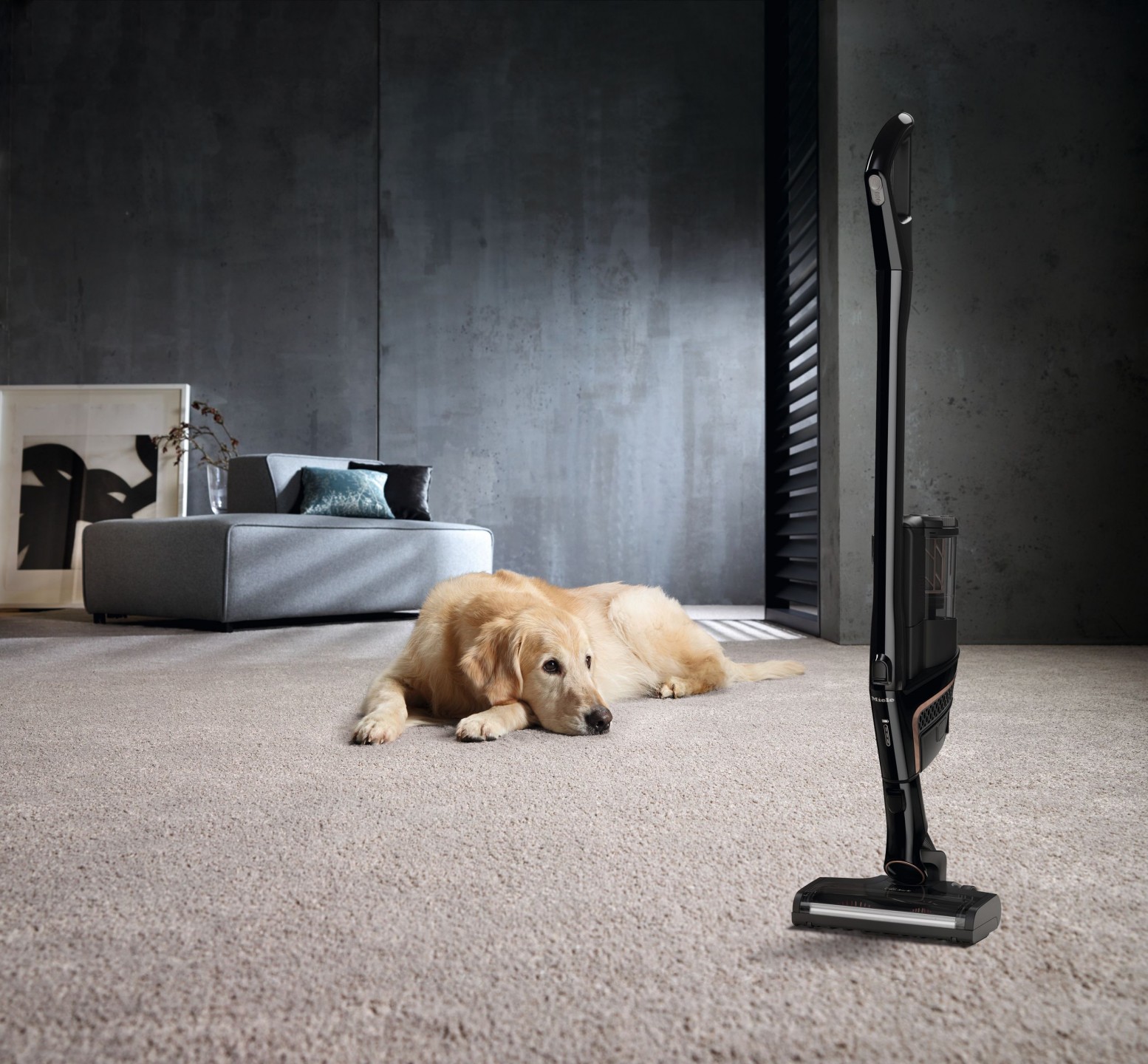
Vacuum at least once a day, as pet hair and dander can accumulate quickly. Miele’s Triflex HX2 Cat & Dog variant, equipped with the Multi-Floor XXL Electrobrush featuring BrilliantLight (LEDs) and a handheld brush, makes it an excellent choice for pet owners. It also boasts an advanced filtration system; with a HEPA lifetime filter, the vacuum captures 99.999% of dust and allergens, creating a healthier environment for both pets and their owners.

Keep your pet disease-free. Ensure your pet receives the recommended vaccinations for their species and maintains the flea, tick, and deworming schedule prescribed by your veterinarian.
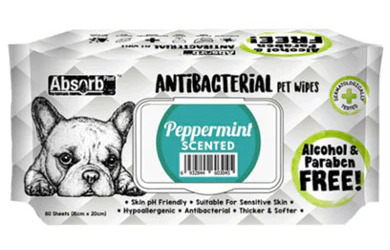
Maintain a consistent bedtime routine: Animals have a circadian rhythm that determines when they feel tired and awake, too. Sleeping and waking up at the same time each day will help you and your pet maintain a similar sleep cycle.
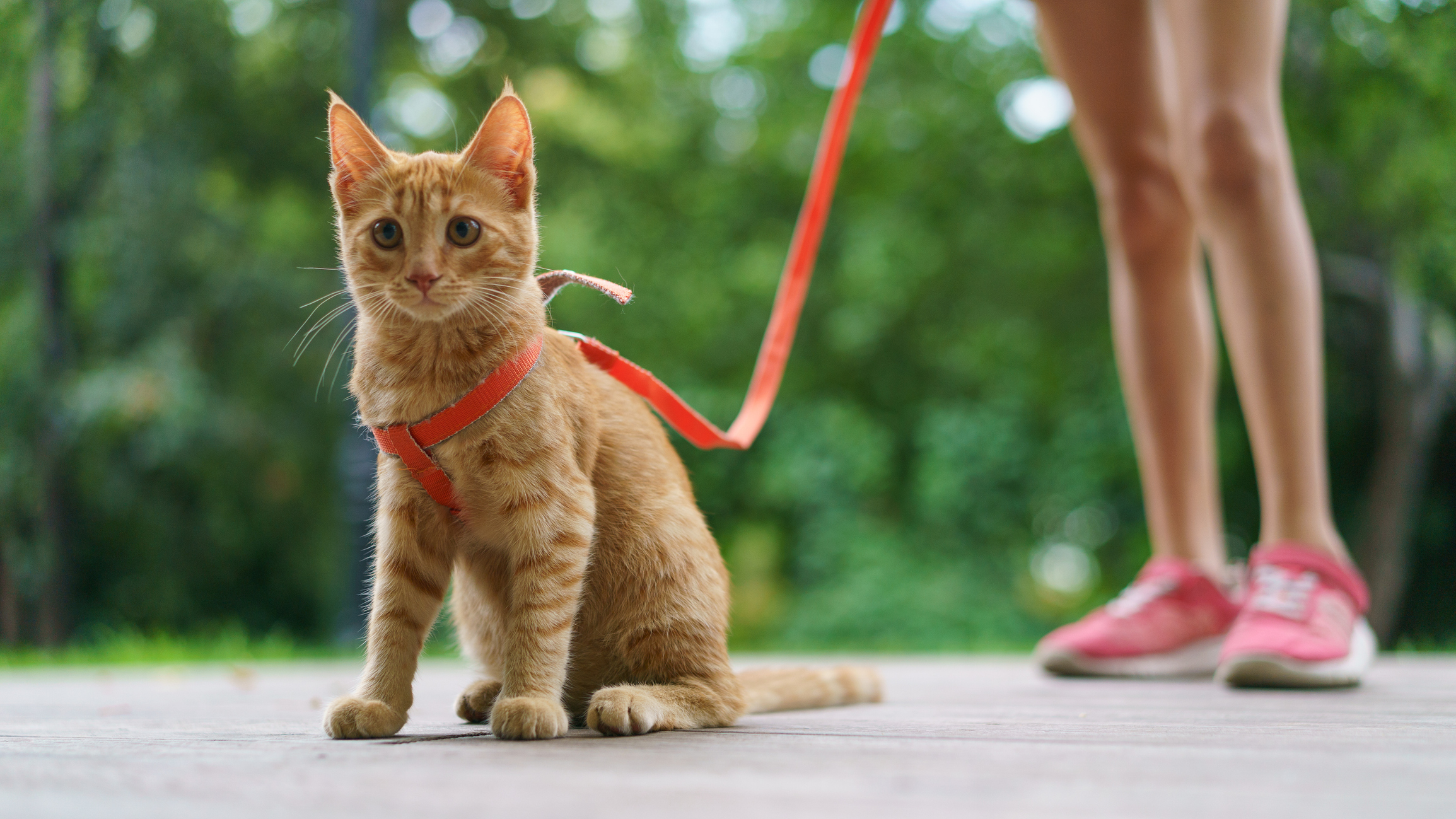
Portrait of the red kitten at the city street in summer day. Legs of a teenager girl-owner as background. Walking of a pet.
Walk your pet before bedtime. This gives them the chance to ease themselves and may help burn off excess energy, so they will move and disturb your sleep less.
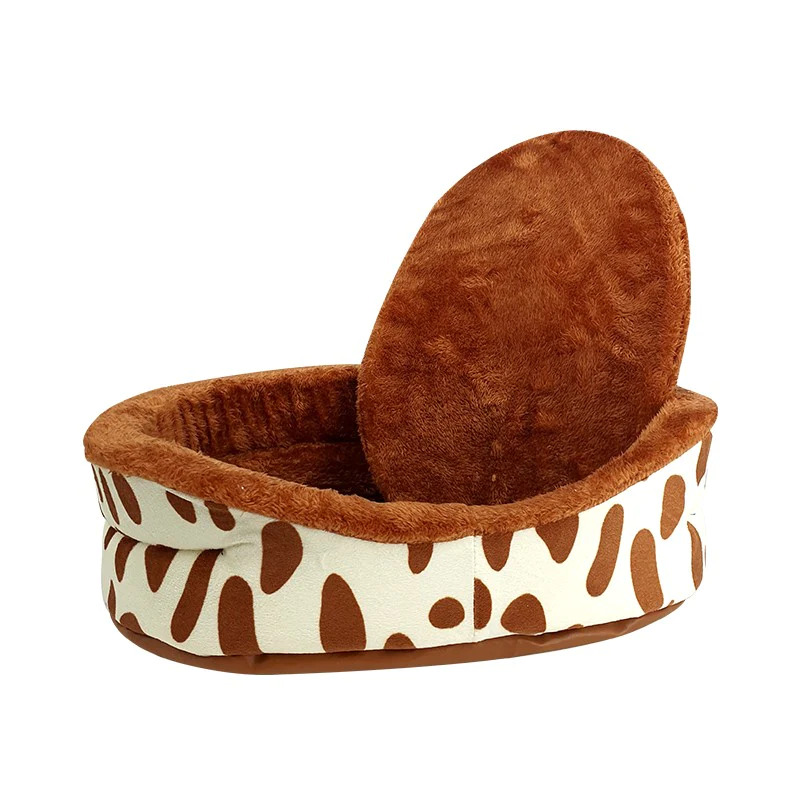
Give your pet their own easy to clean bed in one corner if you value the comfort or security of having them nearby but not in your bed.
HOSPITOLOGY PRODUCTS
Mattress Encasement, Amazon
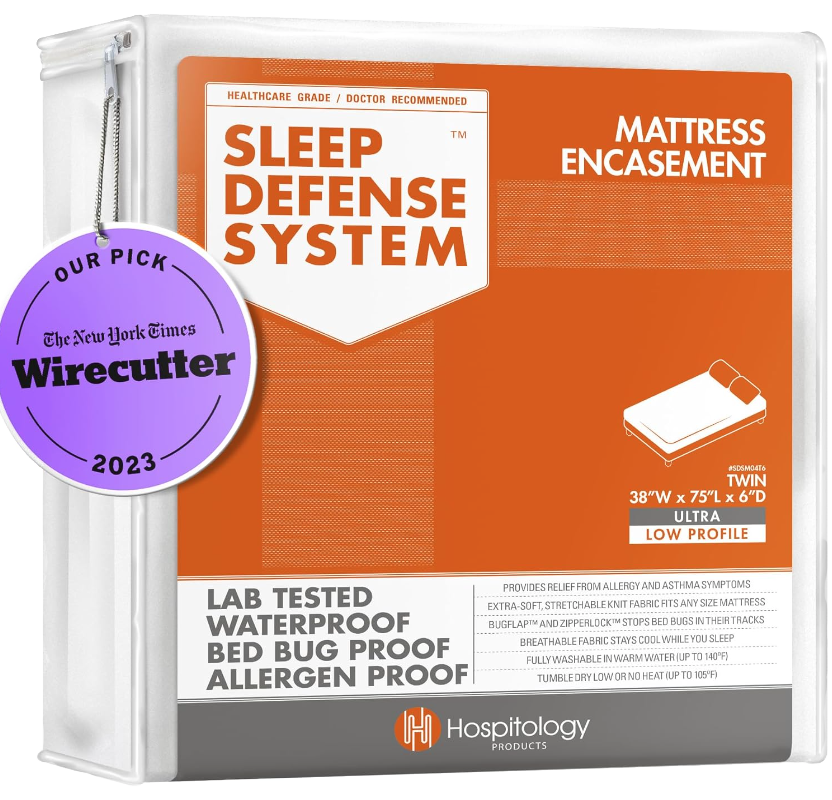
Ensure your mattress is large enough to accommodate you, your pet, and anyone else who shares your bed to minimise disturbances. You should also use a mattress protector. The Hospitology Sleep Defense System Mattress Encasement, a breathable and waterproof encasement with zippered closure from Amazon. Keeps your mattress free of bedbugs, germs, dust mites, allergens and pet hair and saliva.
BÄSTIS Lint roller, grey, IKEA

Wash sheets, bedding, and pet blankets regularly after you have vacuumed or run a lint roller over them. To prevent the spread of unwanted germs, do the same for pet beds in and outside your room.



